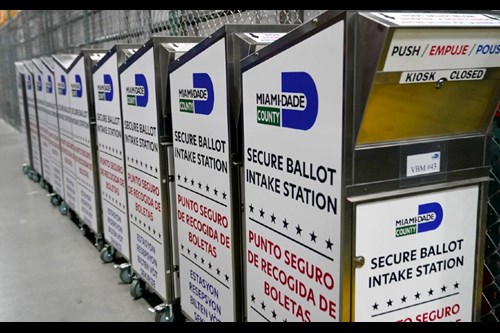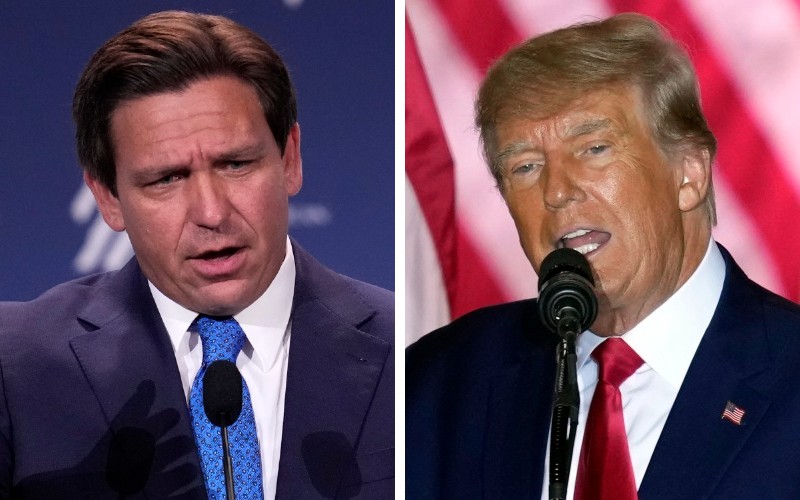There are resources available to help voters understand where their state stands in the election process – for better or worse.
Election integrity “starts with people understanding if you’re not in the room, you’re not in the game,” Ken Blackwell, a senior fellow with the Family Research Council and the special advisor for election integrity at FRC Action, said on Washington Watch Friday. “Each citizen has to commit himself or herself to being involved in the process, to being engaged to the fullest extent of their ability.”
Election integrity resources*Center for Election Integrity*Heritage Foundation scorecard*FRC Action*Concerned Women for America election integrity map |
America First Policy Institute, through its Center for Election Integrity, has launched a color-coded, interactive map that scores and ranks each state on its elections and how they measure up.
“The Center for Election Integrity has a simple goal – to make it easy to vote but hard to cheat,” the group writes on its website.
The Heritage Foundation lacks the map but has produced a similar scoring system. Its Election Integrity Scorecard assesses the status of election laws in each state and what’s needed for fairness and security.
Both resources are updated as laws change in each state.
Blackwell told show host Jody Hice successful measures in several states he says will serve to increase election integrity:
Curtailing private money: Georgia passed a ban on donations from private nonprofit groups to county election offices. Limiting outside election money became a priority for Republicans in Georgia and across the country after the Center for Tech and Civic Life, funded by Facebook founder Mark Zuckerberg, gave more than $400 million to election offices nationwide during the first year of the pandemic, The Atlanta Journal-Constitution reported.
 “One of the things we witnessed in 2020 was the use of private dollars in a partisan and selective way to tilt the playing field. Zuckerberg was famous for dropping about a half-billion dollars for those purposes,” Blackwell said.
“One of the things we witnessed in 2020 was the use of private dollars in a partisan and selective way to tilt the playing field. Zuckerberg was famous for dropping about a half-billion dollars for those purposes,” Blackwell said.
Rank Choice Voting: In Arizona, a push for Rank Choice Voting, a system which allows voters to “rank” candidates, has slowed. In any election that fails to yield an outright majority winner on the first go-round, the RCV system takes a voter’s second-choice candidate and lists that candidate as a “first choice.” The process is repeated until one candidate emerges with a majority of votes. Blackwell and other critics say RCV is confusing and overly complicated.
The group “Save Democracy for Arizona” advocates for Rank Choice Voting and has filed a citizen’s initiative to amend the state constitution to require that all future primary elections be open to any candidate.
Originally, RCV was planned to be a part of the initiative but was found to be lacking great support, Axios Phoenix reported.
Instead, if the initiative passes, the legislature and governor will have until November 2025 to agree on a new system of elections for the state.
Drop boxes illegal: A Wisconsin Supreme Court ruling outlawed drop boxes for mail-in ballots.
Thousands and thousands of precincts nationwide
“So, it all starts with people getting involved. We have 3,100 counties across the country with tens of thousands of precincts, and we have to have citizens involved. So we’re going across the country, we're organizing people,” Blackwell said.

An event over the weekend in Orlando, Florida, helped train older citizens on how they can be involved in the election process.
“It was called Boot Camp for Baby Boomers, and it was about telling older citizens how they can get involved, going to train them in observing. That’s what we’re all about, coalition building and getting citizens involved at the local level,” Blackwell said.
Blackwell told Hice citizens have to take the first step and find out from their local officials how to be a part.
“We have people now concentrating on how they can become observers at ballot tabulation centers. We must make sure that it’s transparent and that people can have confidence that folks who are voting should be voting. We have to have fair, transparent counts of ballots. Get involved,” Blackwell said.







